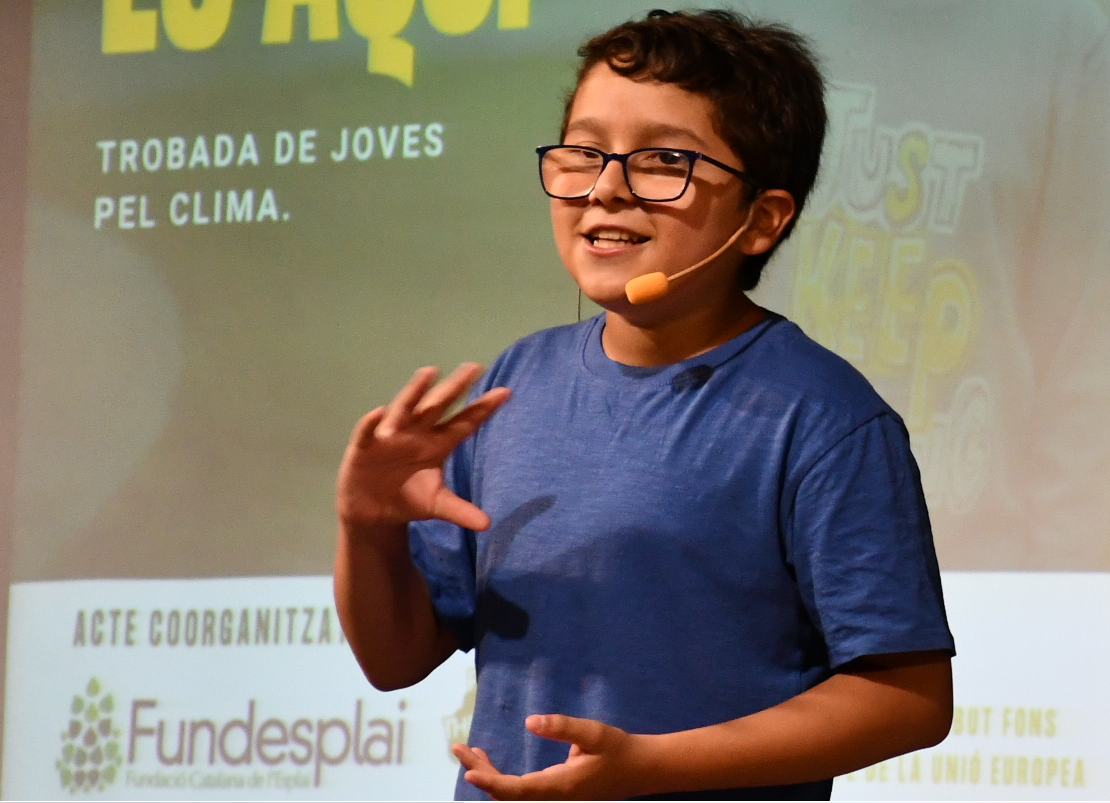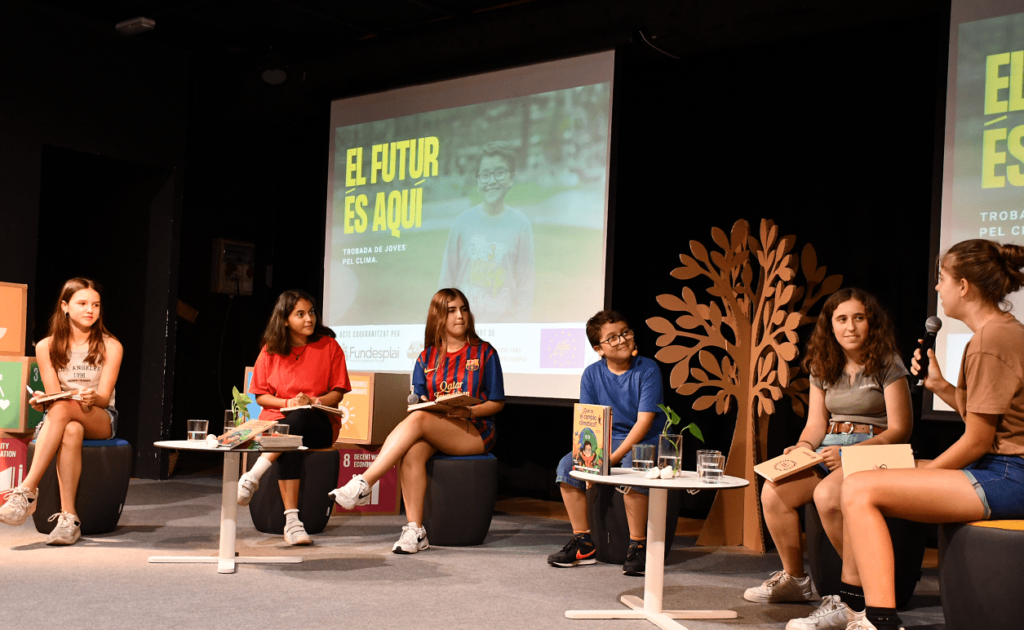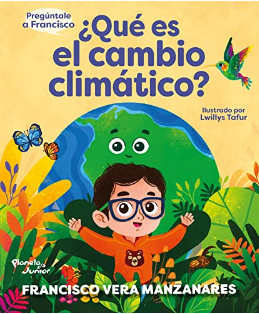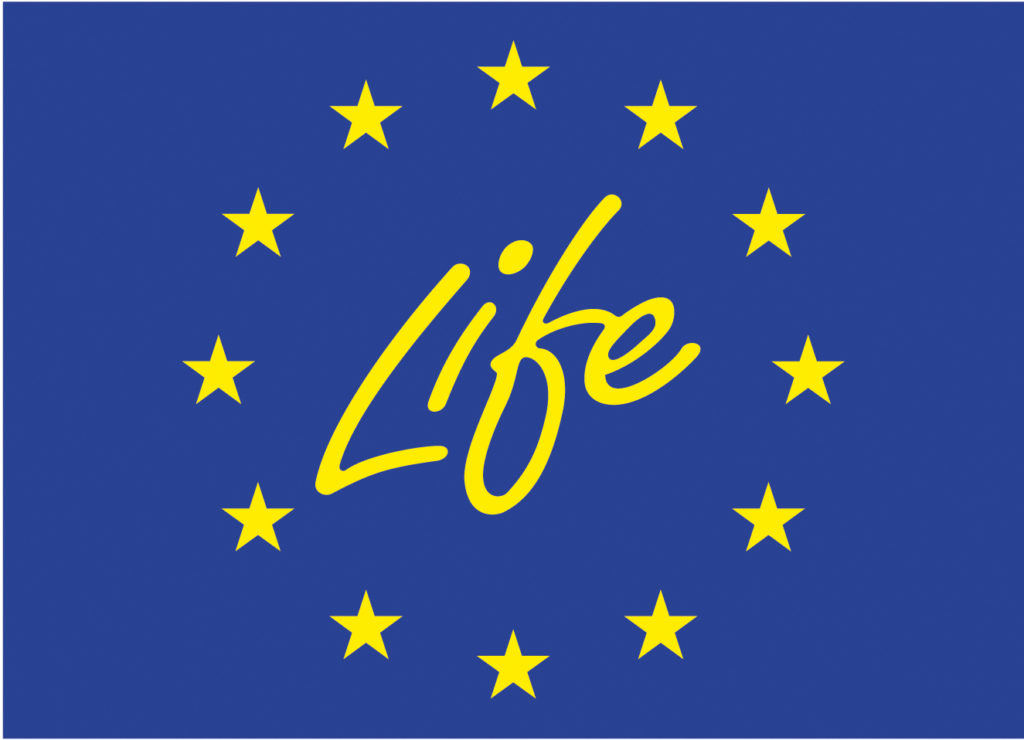
with Francisco Javier Vera Manzanares
WHO IS FRANCISCO?
Francisco is a Colombian boy who began environmental and social activism at seven with his friends. He is currently 12 years old, and his activity only keeps increasing. Francisco travels from place to place, describing his strife. In 2021 he attended the COP26 summit in Glasgow, published a divulgation book on climate change this year, and is a child advisor to the UN and an EU Goodwill Ambassador in Colombia.
Francisco claims that the children’s voice has been historically silenced: “we children have our own voice; we don’t need to get one from others: we need to be listened to“. He also stressed that everyone could become an activist or an influencer and use it in favour of the environmental struggle.
But there is more. Francisco founded the Guardianes por la vida [Guardians for life] movement, aiming to raise awareness of the environment and provide a voice for children. They demand to be heard because they have opinions, and they are the present and the future. The movement boasts more than 400 children from different Latin American countries.
In fact, when Francisco learned that he would be attending COP26, he invited some children to follow a short but intense climate training to write letters to world leaders asking them to implement real policies in the face of the climate and biodiversity emergency.
Impressive, right? Seeing his remarkable trajectory, we are sure to continue to feel like talking about him.
THE MESSAGE: LET’S TAKE CARE OF LIFE, OF OUR PLANET
“We have one planet, we need local action and global thinking. We live at war with nature and we must seek social and environmental peace because we belong to life […]. There is no planet B, our planet is the one that has the best conditions for life“. This is how forceful he sounded at the Fundesplai Centre on 29 June at the Youth Meeting for the Climate.
View the talk here:
He is clear that the different key actors in tackling climate change are:
- Governments and companies, which accumulate a lot of power.
- Schools, which have a role in spreading knowledge. In his words: if education is a seed, society is the grown plant.
- Science, which provides the arguments for the strife.
- Citizens, whose mobilisation is vital, as is understanding that there is only one planet with the right conditions for life development. We must raise our voices and use the tools available to change society.

WHAT ACTIONS CAN WE UNDERTAKE?
The climate activist points out that there is a whole battery of daily individual actions we can undertake to help the environment: creating associations that invite people to mobilise, reducing plastic use by using glass jars and cloth bags, for example, changing our diet to strongly reduce the consumption of animal protein, using public transport, etc.
Moreover, daily activism through individual actions such as those mentioned above are vital and allow the people who make up society to feel integrated as a whole; but, even so, Francisco does not want to leave the adult community indifferent and reprimands them thus: “your main responsibility is to guarantee good environmental conditions for the next generations; without sustainability there is no survival“.
At present, it is clear that the increase in greenhouse gases is mainly due to industrial activity, not to mention how the resources of the African continent have been and are being exploited to transfer them to developed countries. The young activist is particularly harsh on the exploitation of natural resources that go in advance of people or ethnic groups that are unprotected and exposed to colonialist logic.
Connected to what we said above, we must also mention the so-called climate refugees, who are increasingly numbering in the thousands. Proof of this can be seen in the floods in Indonesia, the fires and pests in Australia, or the changes in cultivated products at different latitudes.
Finally, Francisco reminds us that climate change is normal, that Earth has some regulatory capacity over long periods of time, and that there have already been other global climate changes. The problem lies in the fact that there are limits to the regulatory capabilities of our planet and that the current changes are too accelerated, so much so that some authors use the term ‘ecocide’ when referring to the severe damage to ecosystems, landscapes or the biosphere as a whole.
HOW TO TACKLE THIS ENVIRONMENTAL CRISIS?
For all these reasons, we need to act now. However, we must be careful not to fall into catastrophism but try to manage this eco-angst, a term increasingly used to define this restlessness, nervousness or concern for the environment.
Francisco insists on taking on the challenges with hope and optimism but always linked to a commitment to carry out actions that create ecological awareness and bring about real changes.
ASK FRANCISCO: WHAT IS CLIMATE CHANGE?

Pregúntale a Francisco: ¿Qué es el cambio climático? [Ask Francisco: What is Climate Change?] is the title of his book, which he published with Editorial Planeta in 2022. The book aims at a children’s audience, but everyone can enjoy it. With this publication, Francisco seeks to explain in the simplest possible way why the Earth’s temperature has risen, what the causes of global warming are and how to contribute individually and collectively to help reverse this problem.
Throughout its pages, you will find activities that invite you to write, draw or think. In addition, the book has a very innovative perspective: it contains interviews in the form of a dialogue between different elements and systems of the Earth and the Universe, such as with the oceans or Mars.
Learn how climate change will affect the food system in Catalonia by watching this talk by the environmental specialist Jordi Puig Roca on Climate change in Catalonia.

